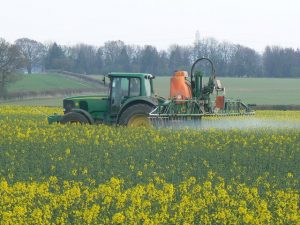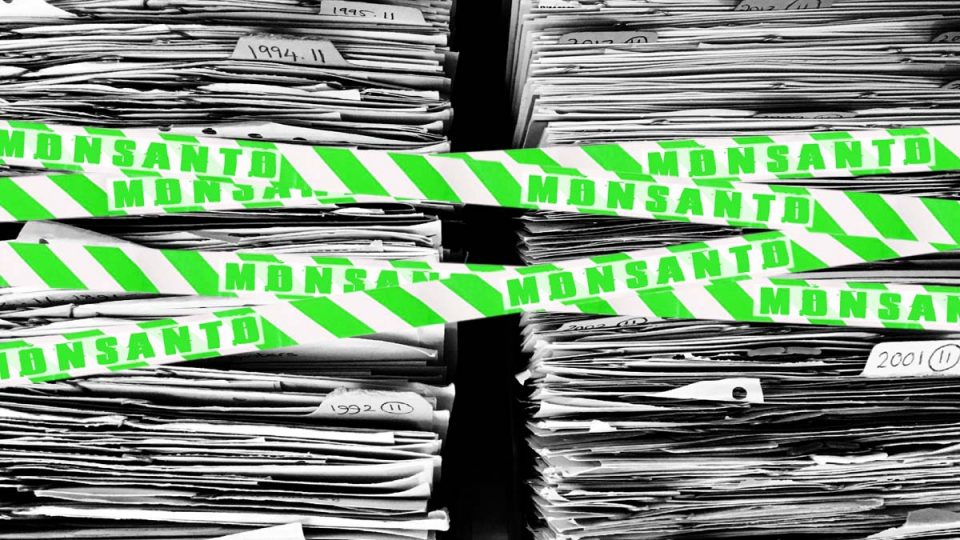- Have any questions? Contact us!
- info@dr-rath-foundation.org

Extra Iron Reduces Later Aggressive Behavior In Low Birth-Weight Babies
October 19, 2017
What You Should Know Before Saying ‘Yes’ To Cholesterol-Lowering Statin Drugs
October 20, 2017Major Setback For The Biotech Industry: Insects Rapidly Developing Resistance To GM Crops

A major new scientific assessment of crops that have been genetically modified to produce pest-killing poisons has found that insects are rapidly developing resistance to them. Published in the Nature Biotechnology journal by researchers from the University of Arizona in the United States, the study examines 36 cases looking at how insects react to the crops. Significantly, as of 2016, the data shows a dramatically reduced efficacy of the poisons in 16 cases, with early warning signs in a further 3 cases. This represents a huge increase from the mere 3 cases of resistance that had been observed by 2005. Overall, resistance or early warning signs of it were found in a majority (19) of the 36 cases examined.
 The data analyzed in the assessment represents the responses of 15 insects in 10 countries on every continent apart from Antarctica. Particularly worryingly, in the 16 cases cited where the insects developed outright resistance, it occurred within an average of only 5 years. The study therefore provides clear evidence that, in promoting the use of genetically modified (GM) crops, governments are recklessly placing the profit interests of multibillion dollar biotech companies before those of the environment.
The data analyzed in the assessment represents the responses of 15 insects in 10 countries on every continent apart from Antarctica. Particularly worryingly, in the 16 cases cited where the insects developed outright resistance, it occurred within an average of only 5 years. The study therefore provides clear evidence that, in promoting the use of genetically modified (GM) crops, governments are recklessly placing the profit interests of multibillion dollar biotech companies before those of the environment.
Levels of chemical herbicides used on GM crops increasing
An important clue regarding the direction GM crop production is heading in can be found in a thought-provoking perspective published in the prestigious New England Journal of Medicine (NEJM) in August 2015. Arguing that the United States government should now change its position and require labeling of GM foods, the authors describe how sharp increases have taken place in the amounts and numbers of chemical herbicides applied to GM crops and that still further increases – the largest in a generation – are scheduled to occur in the next few years. With GM crops being the agricultural products most heavily treated with herbicides, the authors state that the time has come to thoroughly reconsider all aspects of the safety of plant biotechnology.

Crop spraying near St Mary Bourne – geograph.org.uk
Brian Robert Marshall
[CC BY-SA 2.0], via Wikimedia Commons
Putting patents before people
Unlike regular seeds, GM seeds are created in laboratories and do not exist in nature. This is the real reason why biotech companies see them as a highly attractive investment proposition. Patents on GM seeds, and the multibillion dollar potential profits and market control that may result from them, act as powerful incentives for companies to find ways of forcing GM foods onto consumers’ dinner plates – regardless of the dangers to human health.
 It can thus be seen that the production of GM crops is based on precisely the same business model as that of the pharmaceutical and chemical industries. Whether we are talking about GM seeds, drugs or synthetic chemicals, the strategy is precisely the same: altering naturally occurring molecules in such a way that they can be patented and owned. To the companies and industries that engage in these practices, the health interests of people are essentially irrelevant. All that matters is controlling multibillion dollar global markets and fulfilling the commercial greed of shareholders.
It can thus be seen that the production of GM crops is based on precisely the same business model as that of the pharmaceutical and chemical industries. Whether we are talking about GM seeds, drugs or synthetic chemicals, the strategy is precisely the same: altering naturally occurring molecules in such a way that they can be patented and owned. To the companies and industries that engage in these practices, the health interests of people are essentially irrelevant. All that matters is controlling multibillion dollar global markets and fulfilling the commercial greed of shareholders.
But coming only six months after an international tribunal publicly accused Monsanto of committing ‘Ecocide’, the findings of this latest Nature Biotechnology study amount to a major setback for the biotech industry. With insects rapidly developing resistance to GM crops and the only answers offered involving further modification of genes and other strategies that can merely delay but not prevent resistance, the future for the biotech industry looks bleak. But in terms of the health and environmental interests of the people of the world, that can only be seen as very good news indeed.



